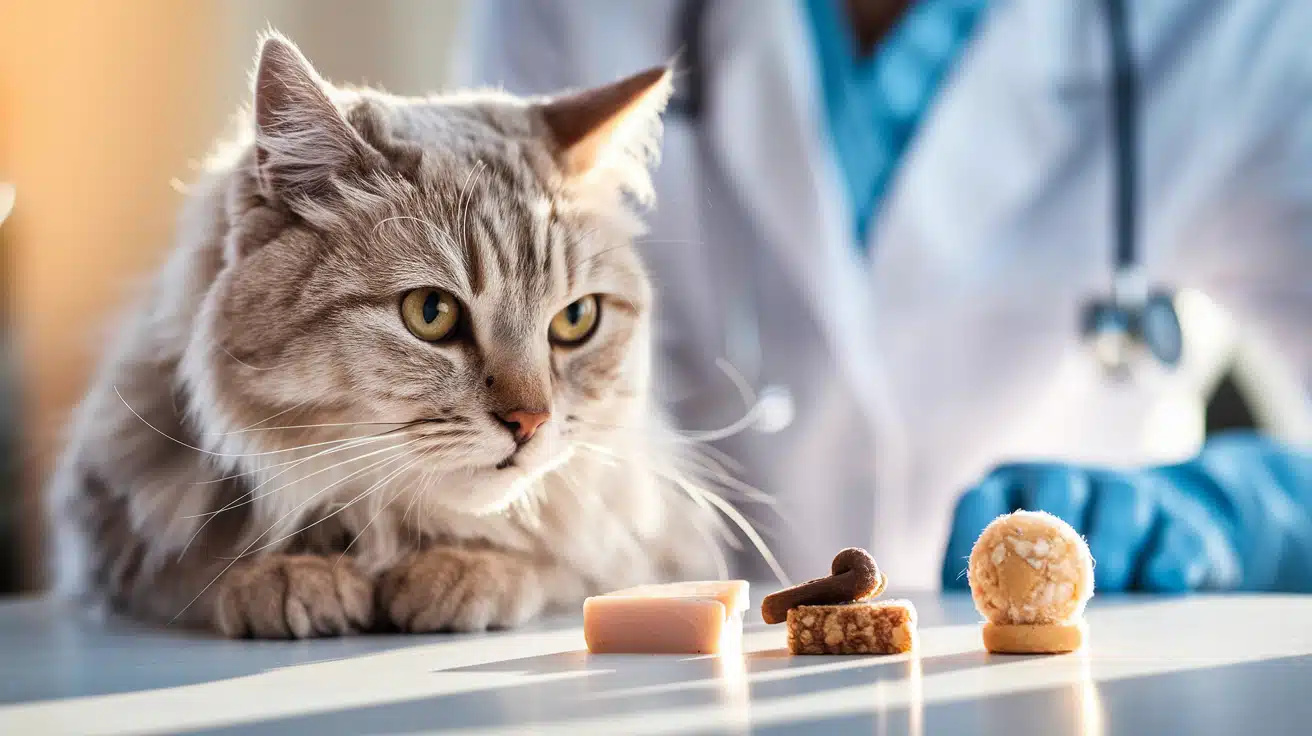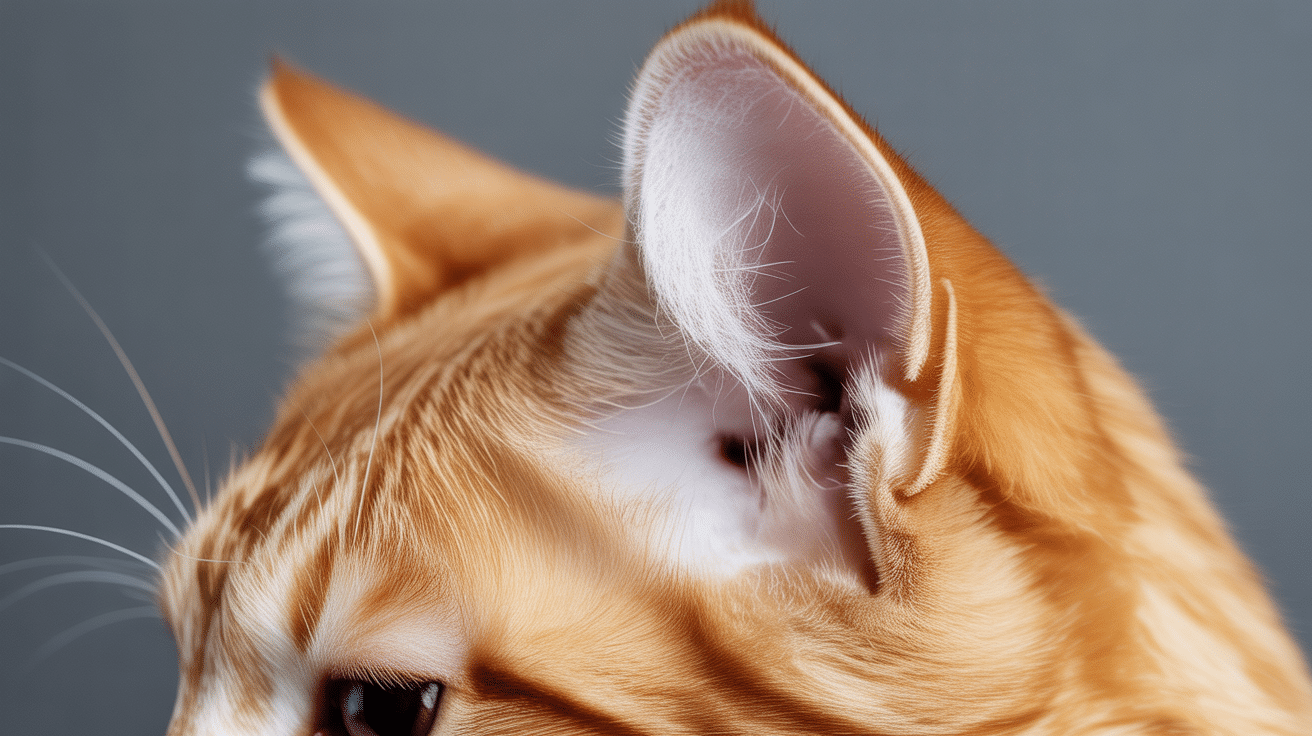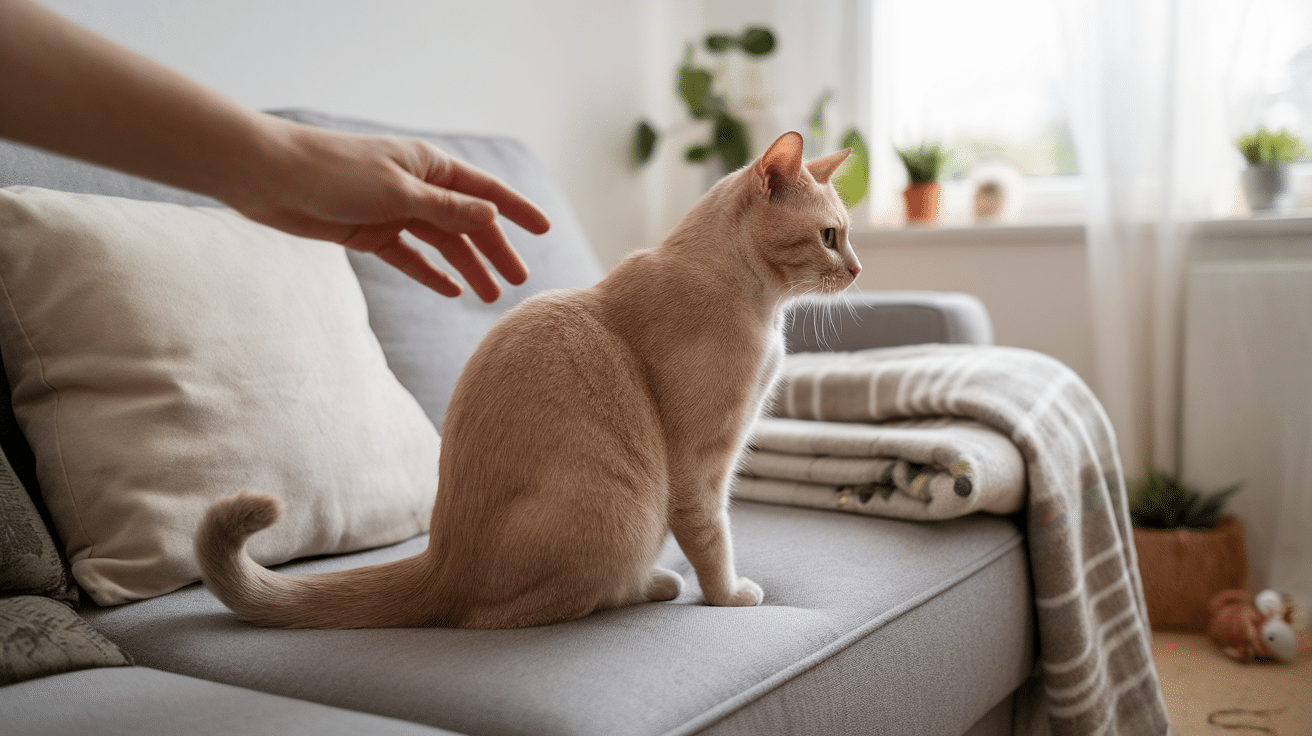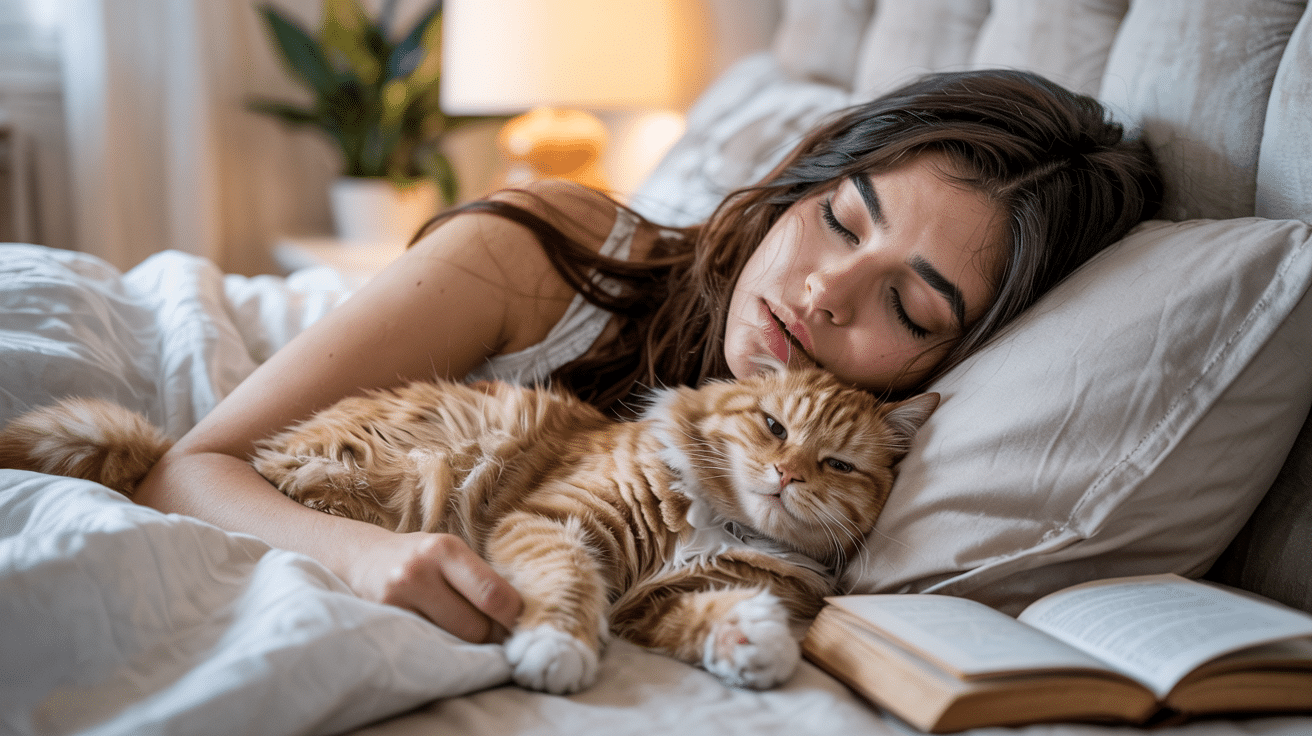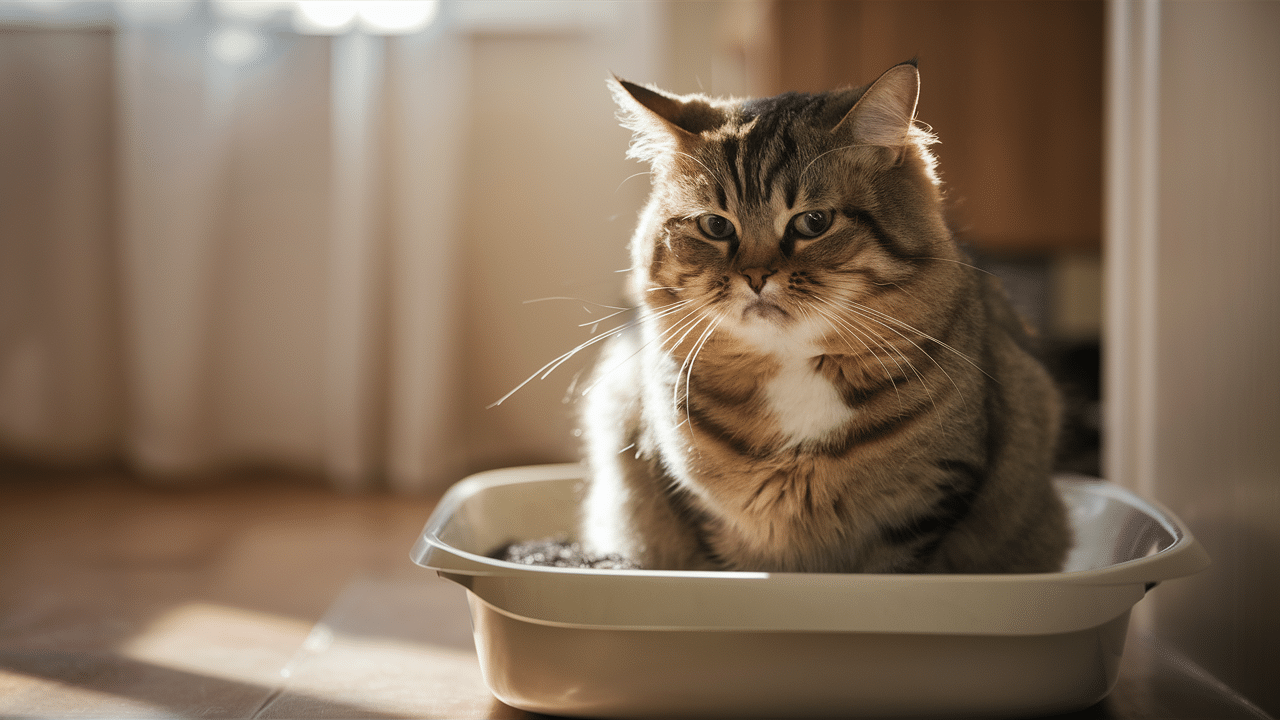Cats are curious creatures, and as pet owners, we often wonder if it’s okay to share our snacks with them.
One treat that might seem harmless is dates; sweet, chewy, and packed with nutrients. However, not all human foods are suitable for our feline friends.
In this guide, we’ll learn why dates might not be the best treat for your cat and offer healthier, safer alternatives.
If you’re looking for better snack options or are just curious about your cat’s dietary needs, this blog will provide valuable insights to ensure your cat stays happy, healthy, and safe.
Keep reading to see the best treats for your furry companion!
Are Dates Safe for Cats?
At first glance, dates may seem like a healthy snack for your cat. After all, they are a natural source of sugar, fiber, and essential minerals like potassium and magnesium.
However, while dates aren’t toxic to cats, they are not a food that is ideal for their dietary needs.
Dates are technically edible for cats, but they come with several risks you should be aware of. The primary concern is the high sugar content in dates.
While sugar may be a normal part of a human diet, cats are obligate carnivores, meaning their bodies are specifically designed to process proteins, not carbohydrates or sugars.
Cats lack the necessary enzymes to break down sugars properly, which can lead to health complications when consumed in large quantities.
Why Are Dates Not Ideal for Cats?
Although dates are not toxic, there are several reasons why they are not suitable for cats to eat regularly:
1. High Sugar Content
Dates are naturally sweet and contain a high concentration of sugar. Unlike humans, cats do not have the digestive enzymes to process these sugars effectively.
When cats consume foods that are high in sugar, their blood sugar levels can spike rapidly. Over time, consuming too much sugar can lead to serious health issues, such as obesity and diabetes.
The sticky nature of dates makes them more likely to stick to your cat’s teeth, promoting the growth of bacteria that can lead to cavities, gum disease, or other dental issues.
2. No Hydration Benefits
Unlike other fruits, such as watermelons or cucumbers, dates are dry and do not provide any hydration.
Since cats often struggle to drink enough water on their own, it’s important to offer them foods that help keep them hydrated.
Dates, being a dried fruit, do not provide this benefit and could even contribute to dehydration in your cat if they consume them regularly.
3. Choking Hazard
Another risk when feeding dates to your cat is the potential choking hazard. Dates have pits inside them, which can be harmful if swallowed.
The pits can block your cat’s airways or obstruct their digestive tract, requiring emergency veterinary treatment.
Even pitted dates can be dangerous, as small fragments of the pit might remain and cause similar problems. It’s crucial to remove the pit completely before offering a date to your cat.
4. Digestive Issues
Cats have shorter digestive tracts than humans, and their bodies are designed to process meat-based proteins rather than plant matter.
Fruits, including dates, can be difficult for cats to digest and may lead to gastrointestinal issues such as diarrhea, vomiting, or stomach discomfort.
If your cat has a sensitive stomach, dates could aggravate these conditions, leading to an unhappy and uncomfortable feline.
What Happens If My Cat Eats Dates?
If your cat consumes a date, monitoring them closely for any signs of discomfort or illness is important.
Symptoms such as vomiting, diarrhea, lethargy, excessive grooming, or changes in their litter box habits could indicate that the fruit didn’t sit well with their digestive system.
In more severe cases, choking or an intestinal blockage could occur, which would require immediate medical attention.
If you notice any of these symptoms after your cat eats a date, it’s important to contact your veterinarian right away.
In most cases, a small amount of data may not cause serious harm, but it’s better to err on the side of caution.
How to Safely Offer Dates to Your Cat
If you decide to give your cat a date, it’s important to do so carefully and in moderation. Here are a few tips to keep in mind:
- Remove the Pit: Always remove the pit from the date before offering it to your cat. The pit can pose a choking hazard or cause an intestinal blockage, which can be dangerous.
- Offer a Small Portion: Dates are high in sugar, which can upset your cat’s stomach. Keep the portion size small, about the size of a pea. This will help avoid digestive issues and potential health problems like obesity or diabetes.
- Limit Frequency: Dates should only be given as an occasional treat, once a month or less. Keep treats to 10% of your cat’s daily intake, with the rest coming from their regular, meat-based food.
- Watch for Reactions: After offering a date, watch your cat for any signs of discomfort, such as vomiting, diarrhea, or lethargy. If you notice anything unusual, contact your vet.
- Don’t Force Acceptance: If your cat isn’t interested in the date, don’t force them to eat it. Pushing them to eat something they don’t want could cause stress. Try again later, or offer a different treat.
Better Alternatives to Dates for Cats
While dates are not the ideal treat for your cat, plenty of safer and healthier alternatives align with your cat’s dietary needs. Here are some options to consider:
1. Protein-Based Treats
Since cats are obligate carnivores, their bodies thrive on protein.
Offering your cat protein-based treats is much better than fruits like dates. Some great alternatives include:
- Freeze-dried meat treats (chicken, turkey, fish)
- Small pieces of plain cooked chicken, turkey, or fish
- Commercial meat sticks designed for cats
These treats are rich in the nutrients your cat needs and are easy to digest.
2. Cat-Safe Fruits
If you’re looking for a fruity treat for your cat, some fruits are safer than dates. Here are a few fruits that are generally safe for cats in small amounts:
- Watermelon: Watermelon is hydrating and low in sugar, making it a great option for cats, especially on hot days.
- Blueberries: Blueberries are antioxidant-rich and low in sugar. They make a great occasional treat for cats.
- Cantaloupe: Many cats enjoy cantaloupe, and it’s low in sugar and safe in small portions.
Always remove any seeds and offer these fruits in small, bite-sized pieces to prevent choking.
3. Commercial Cat Treats
Commercially available cat treats are formulated specifically for cats’ nutritional needs. Look for treats that are high in protein and low in fillers.
Many cat treats come in various textures and flavors, so you can choose one that appeals to your cat’s preferences.
4. Interactive Toys
Interactive toys are a great option if you want to give your cat a non-food reward.
Cats love to play, and toys like feather wands, laser pointers (used responsibly), and puzzle toys will keep them entertained and engaged.
These toys stimulate their hunting instincts and can provide hours of fun without the need for sugary treats.
Conclusion
While dates aren’t toxic to cats, they’re not the best treat because of their high sugar content and potential risks. If you choose to give them dates, do so in moderation and remove the pits.
However, there are better, safer treats to give your cat. Protein-based snacks, safe fruits, and fun toys are great alternatives that better support your cat’s health.
Always pay attention to what your cat needs and watch for any signs of discomfort.
For more tips on keeping your cat healthy and happy, check out our other blogs to learn everything from feeding to playtime!
Frequently Asked Questions
Are Fruits Necessary in a Cat’s Diet?
No. Cats are obligate carnivores and don’t require fruits. Their bodies are designed to get nutrients from meat sources.
Can Cats Taste Sweetness?
Cats lack sweet taste receptors. They’re biologically uninterested in sweet foods, so many ignore fruits entirely.
